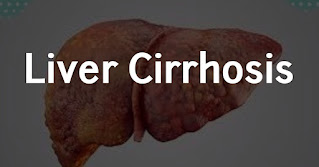Table Of Contents
What is Liver cirrhosis?
(Plasma proteins synthesis got decreased by the liver and retention of sodium by the kidney)
Liver cirrhosis is defined as disease condition in which liver parenchyma got damaged and inflammation occurred.
In simple word,it leads to the degeneration of the liver cells and liver start dysfunctioning.Here due to the destruction of liver cells plasma proteins concentration get decreased thus reducing the ability to synthesise plasma proteins by the liver.
Cirrhosis is also related with the large amounts of fibrous tissue in the structure of liver, that greatly impedes the flow of portal blood through the liver. This impedance again raises capillary pressure throughout the portal vascular bed, which also contributes to the leakage of fluid and proteins into the peritoneal cavity.This a condition is termed as
ascites.
Once the circulation ,fluid and protein are lost , the renal responses are same to those found in other conditions related with decreased in volume of plasma. That is, the kidneys continue to retain salt and water until volume of plasma and arterial pressure are re-established to normal.
In some conditions ,volume of the plasma may actually increase above the normal because of increased vascular capacity in the cirrhosis; the high pressures in the portal circulation can largely distend veins and therefore can increase the vascular capacity.
What are the causes that can lead to liver cirrhosis:
- Infection may cause liver cirrhosis.
- Retention of the bile in the hepatic cells due to obstruction in the ducts of biliary system in our body.
- Liver enlightenment due to intoxication.
- Inflammation around the liver (known as perihepatitis)
- Infiltration of fat in the liver cells.
Some important Features and symptoms of liver cirrhosis:
- He or she may deal with nausea, fever and vomiting.
- Jaundice can be seen.
- Incriment in the heart rate and increased heart output.
- Portal hypertension.
- Weakness of the muscles and wasting of muscles .
- Drowsiness .
- Lack of concentration and seems to be confused state of mind.
- Coma in advanced and severe stages.
Possible Treatment for the liver cirrhosis:
( For proper diagnosis and any kind of medication you must visit a qualified health care professional,we provide you knowledge only)
Treatment can be varies depending on the severity of the case.
For Treatments mainly importance is given to the underlying cause. In some severe cases, a liver transplant may be required.
Some care should be taken by self also:
Some care should be taken by self also:
Low sodium diet and Avoid alcohol
For Medications ammonia reducer, Beta blocker, Antibiotics diuretic and Antiviral drug are given.
Condition similar to the liver cirrhosis:
NEPHROTIC SYNDROME :
PLASMA PROTEINS LOSS IN URINE AND
RETENTION OF SODIUM BY THE KIDNEYS.
One of the very important clinical causes of the edema know to be nephrotic syndrome. In case nephrotic syndrome, the capillaries of the glomerulus leak large amounts of protein into the filtrate and the urine due to the increased glomerular capillary permeability.The patient may loss 30 to 50 grams of plasma protein in urine each day, sometimes it may causes the concentration of the plasma proteins to fall to less than one-third normal. As a result of the decreased plasma protein concentration, the plasma colloid osmotic pressure decrease to low levels. This action causes the capillaries all over the body to filter huge amounts of fluid into the various tissues, which may causes edema and decreases the amount of plasma
volume.
Sodium retention in case of nephrotic syndrome takes place by the various mechanisms activated by leakage of proteins and fluids from the plasma into the interstitially located fluid, including stimulation of various sodium retaining systems like the renin-angiotensin system, aldosterone, and the sympathetic nervous system.
The kidneys continue to retain sodium and water until plasma volume is restored nearly to normal. However, because of the large amount of sodium and water retention, the plasma protein concentration becomes further diluted, causing still more fluid to leak into the tissues of the body. The final result is large amount of fluid retention by the kidneys until many extracellular edema occurs till any treatment is implemented to restore the plasma proteins.









